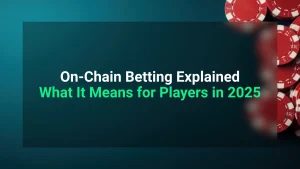
Let’s be honest. The world of betting is thrilling. There’s a rush, a sense of anticipation that’s hard to match. But here’s the deal: that thrill can quickly turn into a problem if you’re not careful. It’s like driving a powerful car. Fun, sure. But you absolutely need to know how to use the brakes.
That’s what we’re talking about today: sustainable and responsible betting. This isn’t about telling you to stop. It’s about building a framework that lets you enjoy the activity without it taking over your life. It’s the difference between a hobby and a hazard.
What Does “Responsible Betting” Actually Mean?
At its core, responsible betting is a mindset. It’s the practice of treating betting as a form of paid entertainment, not a get-rich-quick scheme or a primary income source. Think of it like going to a concert or a nice dinner. You budget for the experience, you enjoy it, and when it’s over, it’s over. You don’t remortgage your house for front-row tickets.
It means being acutely aware of the risks and putting concrete, non-negotiable rules in place to manage them. It’s about self-awareness above all else.
The Pillars of a Sustainable Betting Practice
1. The Non-Negotiable: Budgeting and Financial Limits
This is the foundation. Everything else crumbles without it.
- Set a Loss Limit: Decide the absolute maximum you can afford to lose in a day, week, or month. This is your entertainment budget. Once it’s gone, you’re done. No “chasing” losses. That’s a trap door.
- Set a Win Goal: This one feels counterintuitive, but it’s just as important. Decide on a profit target at which you will walk away. Locking in wins prevents you from giving everything back during a hot streak.
- Use Deposit Limits: Almost all reputable betting sites offer tools to limit how much you can deposit. Use them. It’s an automatic safety net that prevents impulsive decisions in the heat of the moment.
2. Time is Money, So Manage That Too
Problematic betting isn’t just about money; it’s about time. It’s the hours lost that you can’t get back. Setting time limits is a crucial part of sustainable gambling habits. Use a timer. Schedule your sessions. Make sure betting is one small part of your week, not the main event.
3. Knowledge is Your Best Bet
Betting blindly is like throwing darts in the dark. Informed betting, on the other hand, is a skill-based activity. Do your research. Understand the odds, the teams, the players. This shifts your mindset from “I hope I win” to “I’ve made a calculated decision based on information.” That subtle shift makes all the difference. It turns a gamble into a strategic play.
Recognizing the Red Flags: When Fun Stops Being Fun
Self-awareness is your early warning system. It’s the little voice you need to listen to. Ask yourself these questions honestly:
- Are you thinking about betting constantly, even when you’re not doing it?
- Are you betting with money you need for rent, bills, or groceries?
- Are you lying to friends or family about how much time or money you’re spending?
- Do you feel anxious, irritable, or upset when you can’t place a bet?
- Are you “chasing” your losses, trying desperately to win back what you’ve lost?
If you answered yes to any of these, it’s a major signal to pause and reassess. It’s not a sign of weakness; it’s a sign of intelligence to recognize a problem early.
The Toolbox for Staying in Control
Thankfully, you’re not on your own here. The industry—the responsible parts of it, anyway—provides tools. You should be using them.
| Tool | What It Does | Why It’s a Game-Changer |
| Deposit Limits | Caps the amount of money you can add to your account daily, weekly, or monthly. | It’s a pre-commitment. It stops impulsive deposits after a bad loss. |
| Time-Outs | Lets you take a short break from your account, from 24 hours to several weeks. | Perfect for cooling off and regaining perspective without a long-term commitment. |
| Self-Exclusion | Allows you to block access to your account for a longer period, typically 6 months to 5 years. | The ultimate circuit breaker if you feel you’re losing control. |
| Reality Checks | Pop-up alerts that remind you how long you’ve been playing. | It’s easy to lose track of time. This snaps you back to reality. |
Shifting the Mindset: Betting as a Skill, Not a Slot Machine
Honestly, the most sustainable practice is to change how you view betting. Move away from pure chance games like slots. Focus on sports or events where your knowledge and analysis can influence the outcome. This is where responsible gambling strategies really come into play.
It becomes less about luck and more about the process—the research, the analysis, the discipline of sticking to your plan. The win is a validation of your strategy; the loss is a lesson, not a catastrophe.
A Final Thought: The Long Game
Sustainable betting isn’t a single action. It’s a continuous practice, a commitment to yourself. It’s about ensuring that this activity adds a dash of excitement to your life without ever subtracting from your well-being, your finances, or your relationships.
The goal isn’t to win big tonight. The goal is to still be enjoying yourself—financially sound and fully in control—a year from now, five years from now. That’s the real win. And that’s a bet worth making.








